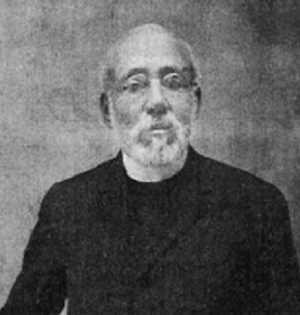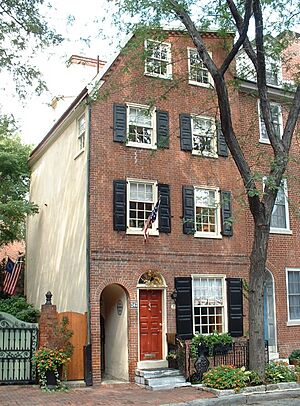Peter William Cassey facts for kids
Quick facts for kids
Peter William Cassey
|
|
|---|---|

Peter William Cassey, c. 1863
|
|
| Born | October 13, 1831 Philadelphia, Pennsylvania, U.S.
|
| Died | April 16, 1917 (aged 85) St. Augustine, Florida, U.S.
|
| Occupation | School founder, Methodist minister and deacon, educator, activist |
| Known for | The first African-American secondary school in California |
|
Notable work
|
Phoenixonian Institute |
| Spouse(s) | Anna Besent Cassey (married ?–1875; death) |
| Parents |
|
Rev. Peter William Cassey (1831–1917) was an important African-American leader in the 1800s. He founded schools, worked as a minister (a religious leader), and was an educator. He was also an abolitionist, meaning he worked to end slavery, and a political activist who fought for equal rights.
Cassey was a pioneer in Santa Clara County, California. He started the first high school for African Americans in California, called the Phoenixonian Institute. Besides his work in education and religion, Cassey was also a successful barber. He even co-owned a shaving shop in San Francisco. Later in his life, he served as a Methodist minister in North Carolina and Florida.
Early Life and Family Background
Peter William Cassey was born on October 13, 1831, in Philadelphia, Pennsylvania. His mother, Amy Matilda (born Williams), was from New York City and was an abolitionist. His father, Joseph Cassey (1789–1848), was also an abolitionist and a barber from the French West Indies.
The Cassey family lived in the historic Cassey House in the Society Hill neighborhood of Philadelphia. Peter's grandfather on his mother's side was Rev. Peter Williams Jr.. He was a founder of St. Philip’s Protestant Episcopal Church in New York City, which was the first African American Episcopal church there. His grandfather also helped start the Phoenix Society, a group that worked to improve the lives of African Americans.
Cassey's Career and Contributions
In 1853, Peter Cassey moved to San Francisco during the California Gold Rush. He worked as a barber and partnered with Charles H. Mecier. Together, they opened a very successful shaving shop in the basement of the Union Hotel in Portsmouth Square, San Francisco. Around 1860, Cassey moved to the San Jose area.
In 1861, he founded the Phoenixonian Institute in San Jose. This was the first secondary school (like a high school) for African Americans in California. It was a private boarding school, meaning students lived there. The Methodist Episcopal Diocese (a church district) first helped fund the school. Cassey also became active in the California State Convention of Colored Citizens, a group that worked for civil rights. This group later provided more financial and other support for the school.
On April 26, 1863, Peter Cassey made history. He was the first person to be ordained (officially made a minister) on the West Coast at Trinity Episcopal Church in San Jose. In the 1870s, Rev. Cassey helped create two new Black Episcopalian churches in San Francisco. One was "Christ's Mission Church," and he also worked closely with the group that later became St. Cyprian’s Church. At that time, neither group had its own building. While Cassey worked in San Francisco, his wife Anna managed the Phoenixonian Institute school.
From 1880 or 1881 until 1894, he served as the first African American priest at St. Cyrian’s Church in New Bern, North Carolina. Later in his life, he was the minister at St. Cyprian's Episcopal Church in St. Augustine, Florida.
Peter William Cassey passed away on April 16, 1917, in St. Augustine, Florida. He is buried in the Evergreen Cemetery in that city.
See also
 | Delilah Pierce |
 | Gordon Parks |
 | Augusta Savage |
 | Charles Ethan Porter |


